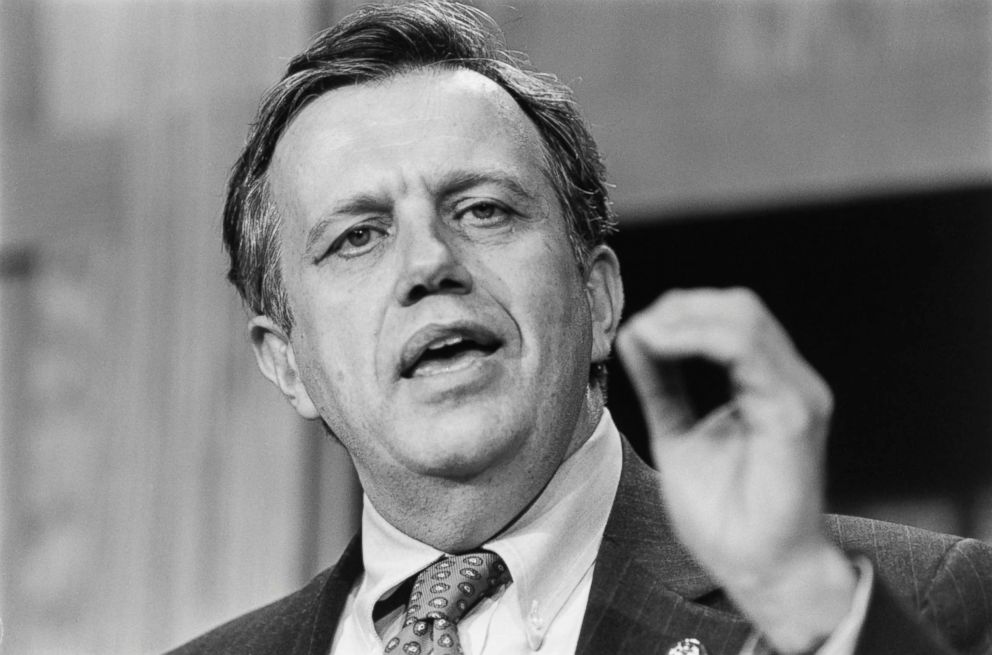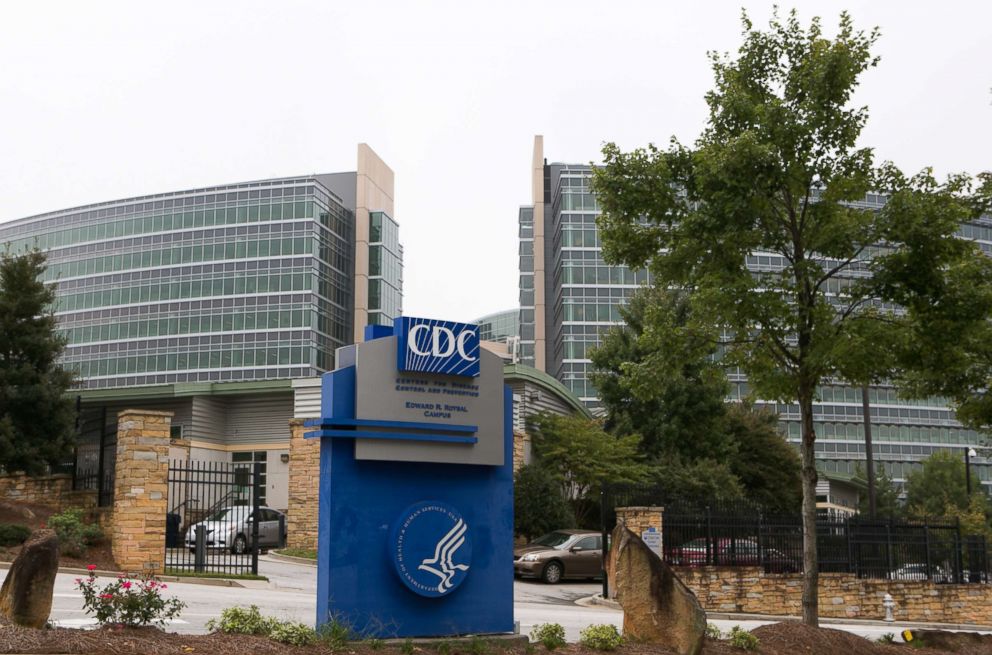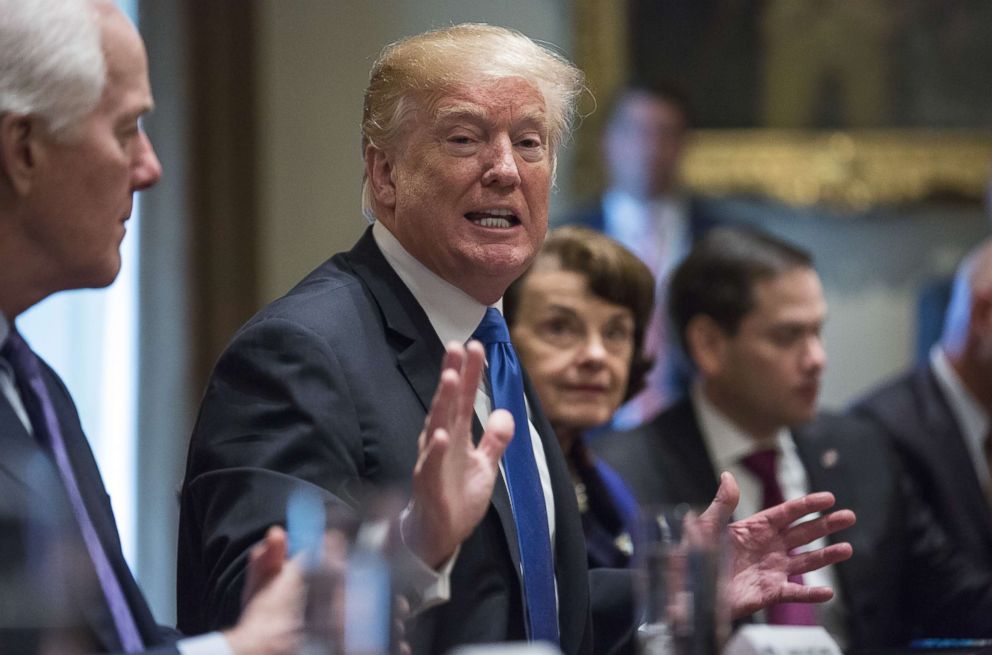Despite renewed calls, funding for research on gun violence continues to stall
Since 1996, funding for research on gun violence has stalled.
The names of the schools, churches, nightclubs and cities have become synonymous with some of the nation's deadliest mass shootings.
Columbine, Sandy Hook and Parkland; Sutherland Springs and AME Baptist Church; and Pulse and Vegas.
In the aftermath of each massacre, a familiar pattern takes hold: thoughts and prayers are offered, the candles at vigils burn out, and politicians promise action, with some making changes at the state level or proposing a new set of safety guidelines to help protect students from other students.
What hasn't followed any of the shootings, however, is federally-backed research into what may be causing the gun violence.
The reason for it stems from a decades-old appropriations amendment that critics say has worked as a lingering and effective deterrent from any research being conducted.
The federal government in 1996 banned the use of any funds from the Centers for Disease Control and Prevention from being "used to advocate or promote gun control."
Back then, the National Rifle Association was widely reported to have lobbied for the inclusion of the amendment, which was written by and then named after then-Rep. Jay Dickey, a Republican from Arkansas.

“What that did is it effectively had a chilling effect so the CDC did not study gun violence in any way,” said Robin Lloyd, the director of government affairs at Giffords, a gun safety advocacy group named after former Congresswoman Gabby Giffords, who was shot while meeting with constituents in 2012.
The impact of the amendment
The literal text of the so-called Dickey Amendment, as it came to be known, references research that promotes gun control. In reality, though, Congress has a history of interpreting that stipulation in a way that shuts down research.
In 1993, the New England Journal of Medicine published a study that used CDC-funded research. Titled “Gun Ownership as a Risk Factor for Homicide in the Home,” the study found gun ownership was strongly associated with an increased risk of homicide.
The report got the attention of the NRA, which, according to reports at the time, lobbied to have the branch of the CDC that funded the research shut down. Instead, Dickey was able to add the pivotal line about gun research into the omnibus spending bill in 1996.
Beyond that, Congress redirected $2.6 million within the CDC -- the exact amount that had been earmarked the previous year for research into firearm injuries -- and moved it to the study of traumatic brain injuries.

“That was a very clear signal from Congress that, ‘You will not study gun violence,’” Lloyd told ABC News.
A spokeswoman for the NRA said the organization is in favor of research that supports safe gun use.
"The National Rifle Association is not opposed to research that would encourage the safe and responsible use of firearms and reduce the number of firearm-related deaths. Safety has been at the core of the NRA mission since its inception," the spokeswoman, Amy Hunter, told ABC News. "However, firearm safety is not the goal of the advocates seeking CDC funding -— gun control is."
Hunter went on to point to examples of what the NRA views as legitimate areas of research, including looking at the role of deterrence in reducing gun violence, how firearms are used in self-defense, and how firearms get into criminal hands.
Still, the interpretation of the Dickey Amendment has held, even to the man after whom it was named. The then-retired congressman was asked by NPR in 2015 if the intention was to cut off all research on the effects of gun ownership.
"We didn’t think about that,” he said. “It turned out that’s what happened, but it wasn’t aimed at that.
"And it wasn’t necessary that all research stop," he added. "It just couldn’t be the collection of data so that they can advocate gun control. That’s all we were talking about. But for some reason, it just stopped altogether.”
Researchers argue that data collection is not advocacy work, even though data that are collected are typically used by advocacy groups on either side of an argument.
“How this has played out is we don’t have the data points to understand the scope of the problem from federal research and we don’t know if there are specific standards we should have in preventing gun violence,” Lloyd said. “We don’t have the research that would help us to create policy.”
Recent actions, but no changes
Some were optimistic that things might change earlier this year, however. The day after the deadly shooting at Marjorie Stoneman Douglas High School in Parkland, Florida, Health and Human Services Secretary Alex Azar told a House committee that he is open to research on gun violence.
“We're in the science business and the evidence-generating business,” Azur said.
“We believe we've got a very important mission with our work with serious mental illness as well as our ability to do research on the causes of violence and the causes behind tragedies like this," he added, referring to the Parkland shooting. "So that is a priority for us.”
That won the support of many of the nation’s doctors. The American Medical Association, the largest organization of physicians in the country, issued a statement praising Azur’s comments.
“As in any urgent public health threat, we cannot devise effective solutions until we have a deeper understanding of the underlying causes that prompt gun violence,” AMA president David Barbe said in a statement at the time. “With more than 30,000 Americans dying each year from gun violence and firearm-related accidents, the time to act is now.”
President Donald Trump, in spite of his close ties to the National Rifle Association, called for action on guns in the wake of the Parkland, too. He met with lawmakers and families impacted by gun violence, soliciting opinions on what could be done.

His administration added a line about federal gun research in the omnibus spending bill that he signed in March. But the added line didn’t actually change anything about the Dickey Amendment, which wasn’t mentioned by name, effectively maintaining the existing rule and how it's interpreted.
“While appropriations language prohibits the CDC and other agencies from using appropriated funding to advocate or promote gun control, the Secretary of Health and Human Services has stated the CDC has the authority to conduct research on the causes of gun violence,” the line states.
The appropriations made in the spending bill included more than $658 million for the CDC subsection called ‘Injury Prevention and Control.’ But more than 73 percent of those funds were allocated for opioid drug overdose prevention programming -- meaning there were no funds allocated specifically for gun research.
“Appropriators are very clear about where they spend their money. It’s not like they just get a pot of money and they get to pick and choose,” Lloyd said. “Until money is actually appropriated [to gun violence research], I don’t see how anything will actually change at the CDC.”
The CDC did not return ABC News’ request for comment.
Lloyd places the blame at the hands of lawmakers and congressional appropriators, saying the funds are necessary but there are other routes of action -- including the passage of bipartisan bills on any number of gun-related topics in both the Senate and the House that are not being called to a vote.
“We have leadership in Congress who refuses to put these policies on the floor and until we have a president that's demanding it goes to the floor ... nothing is going to change,” she said.




